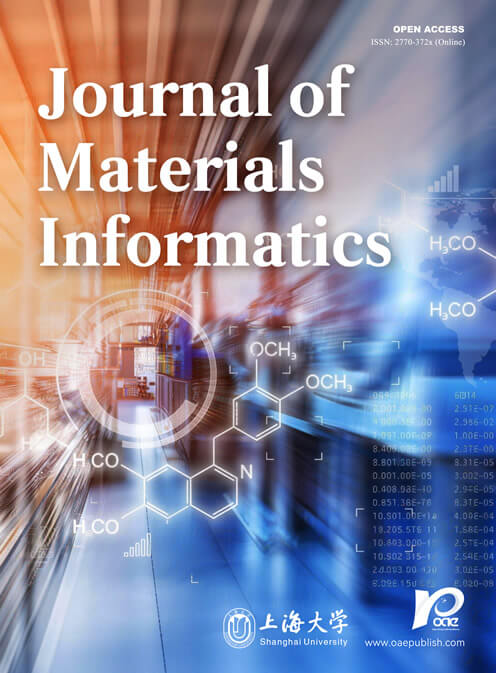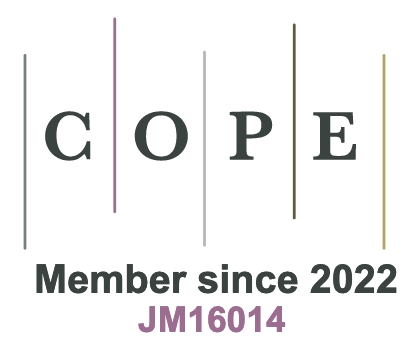REFERENCES
1. Sakintuna, B.; Lamaridarkrim, F.; Hirscher, M. Metal hydride materials for solid hydrogen storage: a review. Int. J. Hydrogen. Energy. 2007, 32, 1121-40.
2. Schlapbach, L.; Züttel, A. Hydrogen-storage materials for mobile applications. Nature 2001, 414, 353-8.
3. Zhang, J.; Liu, M.; Qi, J.; et al. Advanced Mg-based materials for energy storage: fundamental, progresses, challenges and perspectives. Prog. Mater. Sci. 2025, 148, 101381.
4. Liu, H.; Zhang, J.; Zhou, C.; Sun, P.; Liu, Y.; Fang, Z. Z. Hydrogen storage properties of Ti-Fe-Zr-Mn-Nb alloys. J. Alloys. Compd. 2023, 938, 168466.
5. Zhang, Y.; Shang, H.; Gao, J.; Zhang, W.; Wei, X.; Yuan, Z. Effect of Sm content on activation capability and hydrogen storage performances of TiFe alloy. Int. J. Hydrogen. Energy. 2021, 46, 24517-30.
6. Dematteis, E. M.; Dreistadt, D. M.; Capurso, G.; Jepsen, J.; Cuevas, F.; Latroche, M. Fundamental hydrogen storage properties of TiFe-alloy with partial substitution of Fe by Ti and Mn. J. Alloys. Compd. 2021, 874, 159925.
7. Ali, W.; Hao, Z.; Li, Z.; et al. Effects of Cu and Y substitution on hydrogen storage performance of TiFe0.86Mn0.1Y0.1-xCux. Int. J. Hydrogen. Energy. 2017, 42, 16620-31.
8. Chen, Z.; Xiao, X.; Chen, L.; et al. Development of Ti–Cr–Mn–Fe based alloys with high hydrogen desorption pressures for hybrid hydrogen storage vessel application. Int. J. Hydrogen. Energy. 2013, 38, 12803-10.
9. Zepon, G.; Silva, B. H.; Zlotea, C.; Botta, W. J.; Champion, Y. Thermodynamic modelling of hydrogen-multicomponent alloy systems: calculating pressure-composition-temperature diagrams. Acta. Mater. 2021, 215, 117070.
10. Lototsky, M.; Yartys, V.; Marinin, V.; Lototsky, N. Modelling of phase equilibria in metal–hydrogen systems. J. Alloys. Compd. 2003, 356-7, 27-31.
11. Zhou, Z.; Zhang, J.; Ge, J.; Feng, F.; Dai, Z. Mathematical modeling of the PCT curve of hydrogen storage alloys. Int. J. Hydrogen. Energy. 1994, 19, 269-73.
12. Loh, S. M.; Grant, D. M.; Walker, G. S.; Ling, S. Substitutional effect of Ti-based AB2 hydrogen storage alloys: a density functional theory study. Int. J. Hydrogen. Energy. 2023, 48, 13227-35.
13. Xie, X.; Hou, C.; Chen, C.; et al. First-principles studies in Mg-based hydrogen storage Materials: a review. Energy 2020, 211, 118959.
14. Sun, H.; Gao, X.; Zhao, F.; Li, Y.; Zhang, Y.; Ren, H. Interactions of Y and Cu on Mg2Ni type hydrogen storage alloys: a study based on experiments and density functional theory calculation. Int. J. Hydrogen. Energy. 2020, 45, 28974-84.
15. Hu, J.; Shen, H.; Jiang, M.; et al. A DFT study of hydrogen storage in high-entropy alloy TiZrHfScMo. Nanomaterials 2019, 9, 461.
16. Ward, L.; Agrawal, A.; Choudhary, A.; Wolverton, C. A general-purpose machine learning framework for predicting properties of inorganic materials. npj. Comput. Mater. 2016, 2, 16028.
17. Batalović, K.; Koteski, V.; Stojić, D. Hydrogen storage in martensite Ti–Zr–Ni alloy: a density functional theory study. J. Phys. Chem. C. 2013, 117, 26914-20.
18. Yang, H.; Ding, Z.; Li, Y.; et al. Recent advances in kinetic and thermodynamic regulation of magnesium hydride for hydrogen storage. Rare. Met. 2023, 42, 2906-27.
19. Yadav, S.; Oberoi, A. S.; Mittal, M. K. Electrochemical hydrogen storage: achievements, emerging trends, and perspectives. Int. J. Energy. Res. 2022, 46, 16316-35.
20. Rahnama, A.; Zepon, G.; Sridhar, S. Machine learning based prediction of metal hydrides for hydrogen storage, part I: Prediction of hydrogen weight percent. Int. J. Hydrogen. Energy. 2019, 44, 7337-44.
21. Zhou, P.; Zhou, Q.; Xiao, X.; et al. Machine learning in solid-state hydrogen storage materials: challenges and perspectives. Adv. Mater. 2025, 37, e2413430.
22. Lu, Z.; Wang, J.; Wu, Y.; Guo, X.; Ma, T.; Xiao, W. Prediction and theoretical investigation of dehydrogenation enthalpy of V–Ti–Cr–Fe alloy using machine learning and density functional theory. Int. J. Hydrogen. Energy. 2024, 50, 379-89.
23. Suwarno, S.; Dicky, G.; Suyuthi, A.; et al. Machine learning analysis of alloying element effects on hydrogen storage properties of AB2 metal hydrides. Int. J. Hydrogen. Energy. 2022, 47, 11938-47.
24. Dong, S.; Wang, Y.; Li, J.; Li, Y.; Wang, L.; Zhang, J. Exploration and design of Mg alloys for hydrogen storage with supervised machine learning. Int. J. Hydrogen. Energy. 2023, 48, 38412-24.
25. Kanti, P. K.; Shrivastav, A. P.; Sharma, P.; Maiya, M. Thermal performance enhancement of metal hydride reactor for hydrogen storage with graphene oxide nanofluid: model prediction with machine learning. Int. J. Hydrogen. Energy. 2024, 52, 470-84.
26. Salehi, K.; Rahmani, M.; Atashrouz, S. Machine learning assisted predictions for hydrogen storage in metal-organic frameworks. Int. J. Hydrogen. Energy. 2023, 48, 33260-75.
27. Jiang, H.; Ding, Z.; Li, Y.; et al. Hierarchical interface engineering for advanced magnesium-based hydrogen storage: synergistic effects of structural design and compositional modification. Chem. Sci. 2025, 16, 7610-36.
28. Ding, Z.; Li, Y.; Yang, H.; et al. Tailoring MgH2 for hydrogen storage through nanoengineering and catalysis. J. Magnes. Alloys. 2022, 10, 2946-67.
29. Athul, A. S.; Muthachikavil, A. V.; Buddhiraju, V. S.; Premraj, K.; Runkana, V. Identification of stable intermetallic compounds for hydrogen storage via machine learning. Energy. Storage. 2025, 7, e70115.
30. Radhika, N.; Niketh, M. S.; Akhil, U.; Adediran, A. A.; Jen, T. High entropy alloys for hydrogen storage applications: a machine learning-based approach. Results. Eng. 2024, 23, 102780.
31. Halpren, E.; Yao, X.; Chen, Z. W.; Singh, C. V. Machine learning assisted design of BCC high entropy alloys for room temperature hydrogen storage. Acta. Mater. 2024, 270, 119841.
32. Dangwal, S.; Ikeda, Y.; Grabowski, B.; Edalati, K. Machine learning to explore high-entropy alloys with desired enthalpy for room-temperature hydrogen storage: prediction of density functional theory and experimental data. Chem. Eng. J. 2024, 493, 152606.
33. Zhou, P.; Xiao, X.; Zhu, X.; et al. Machine learning enabled customization of performance-oriented hydrogen storage materials for fuel cell systems. Energy. Storage. Mater. 2023, 63, 102964.
34. Ahmed, A.; Siegel, D. J. Predicting hydrogen storage in MOFs via machine learning. Patterns 2021, 2, 100291.
35. Halevy, A.; Norvig, P.; Pereira, F. The unreasonable effectiveness of data. IEEE. Intell. Syst. 2009, 24, 8-12.
36. Wilson, N.; Verma, A.; Maharana, P. R.; Sahoo, A. B.; Joshi, K. HyStor: an experimental database of hydrogen storage properties for various metal alloy classes. Int. J. Hydrogen. Energy. 2024, 90, 460-9.
37. Hattrick-simpers, J. R.; Choudhary, K.; Corgnale, C. A simple constrained machine learning model for predicting high-pressure-hydrogen-compressor materials. Mol. Syst. Des. Eng. 2018, 3, 509-17.
38. Witman, M.; Ling, S.; Grant, D. M.; et al. Extracting an empirical intermetallic hydride design principle from limited data via interpretable machine learning. J. Phys. Chem. Lett. 2020, 11, 40-7.
39. Van’t Hoff JH. Studies in chemical dynamics (in French). 1884. https://www.google.com/books?id=A_VoAAAAcAAJ. (accessed 26 Aug 2025).
40. Kingma, D. P.; Welling, M. Auto-encoding variational bayes. arXiv 2013, arXiv:1312.6114. https://doi.org/10.48550/arXiv.1312.6114. (accessed 26 Aug 2025).
41. Sanchez-Lengeling, B.; Aspuru-Guzik, A. Inverse molecular design using machine learning: generative models for matter engineering. Science 2018, 361, 360-5.
42. Gómez-Bombarelli, R.; Wei, J. N.; Duvenaud, D.; et al. Automatic chemical design using a data-driven continuous representation of molecules. ACS. Cent. Sci. 2018, 4, 268-76.
43. Lu, Z.; Wang, J.; Wu, Y.; Guo, X.; Xiao, W. Predicting hydrogen storage capacity of V–Ti–Cr–Fe alloy via ensemble machine learning. Int. J. Hydrogen. Energy. 2022, 47, 34583-93.
44. Rousseeuw, P. J. Silhouettes: A graphical aid to the interpretation and validation of cluster analysis. J. Comput. Appl. Math. 1987, 20, 53-65.
45. Davies, D. L.; Bouldin, D. W. A cluster separation measure. IEEE. Trans. Pattern. Anal. Mach. Intell. 1979, 1, 224-7.
46. Tsukahara, M. Hydrogenation properties of vanadium-based alloys with large hydrogen storage capacity. Mater. Trans. 2011, 52, 68-72.
47. Ge, Y.; Lang, P. Alloy selections in high-temperature metal hydride heat pump systems for industrial waste heat recovery. Energy. Rep. 2022, 8, 3649-60.
48. Li, Y. L.; Li, P.; Zhai, F. Q.; Zhang, W. N.; Qu, X. H. Hydrogen storage properties of Mg1.7M0.3Ni (M = Mg, La, Ce, Nd) hydrogen storage alloys. Adv. Mater. Res. 2012, 512-5, 1503-8.
49. Witman, M.; Ek, G.; Ling, S.; et al. Data-driven discovery and synthesis of high entropy alloy hydrides with targeted thermodynamic stability. Chem. Mater. 2021, 33, 4067-76.
50. Verma, A.; Wilson, N.; Joshi, K. Solid state hydrogen storage: decoding the path through machine learning. Int. J. Hydrogen. Energy. 2024, 50, 1518-28.
51. Wang, X.; Zhu, F.; Xue, X.; et al. Suction-cast strategy to enhance hydrogen storage performance of rare earth-based alloys. Int. J. Hydrogen. Energy. 2025, 104, 220-7.








